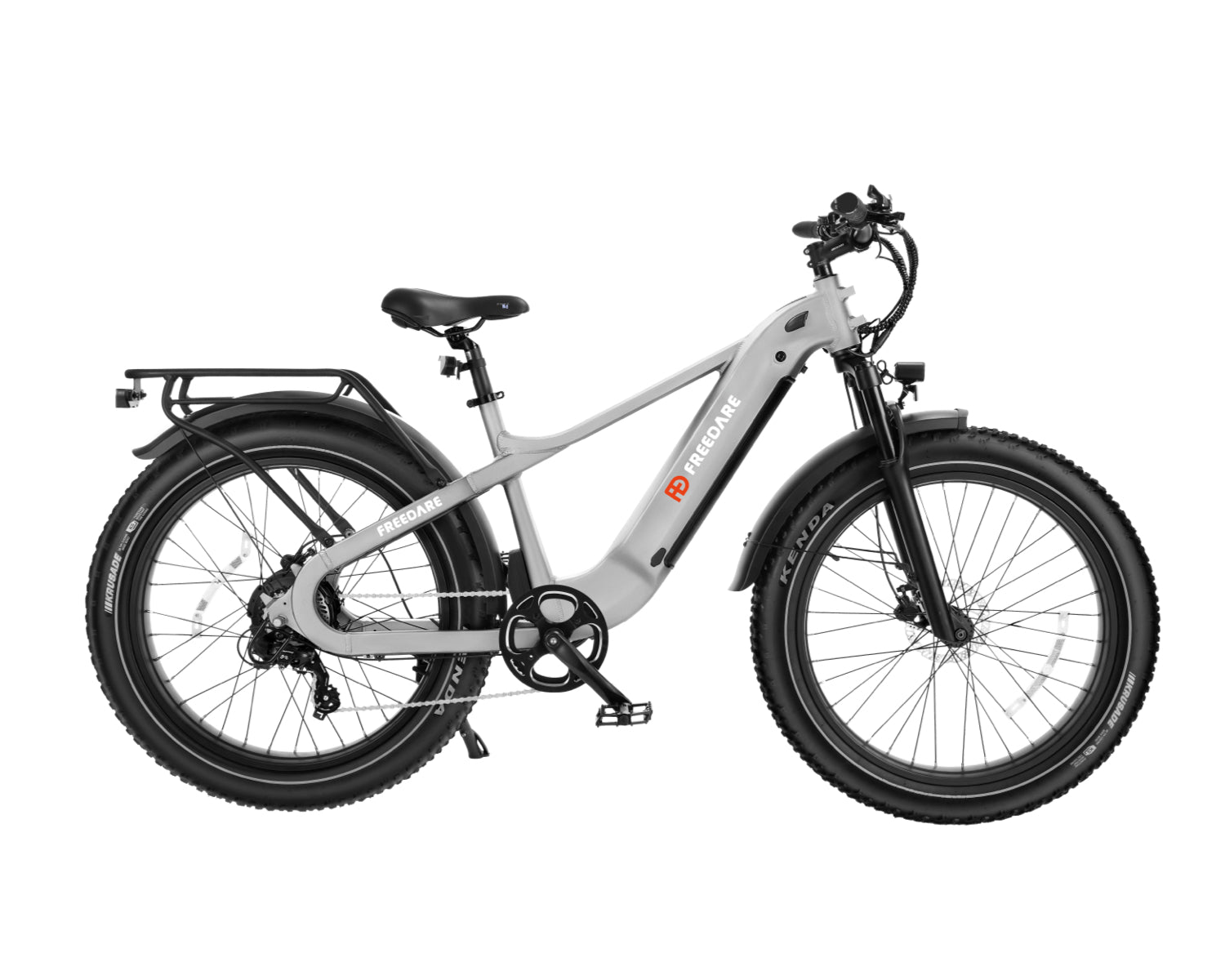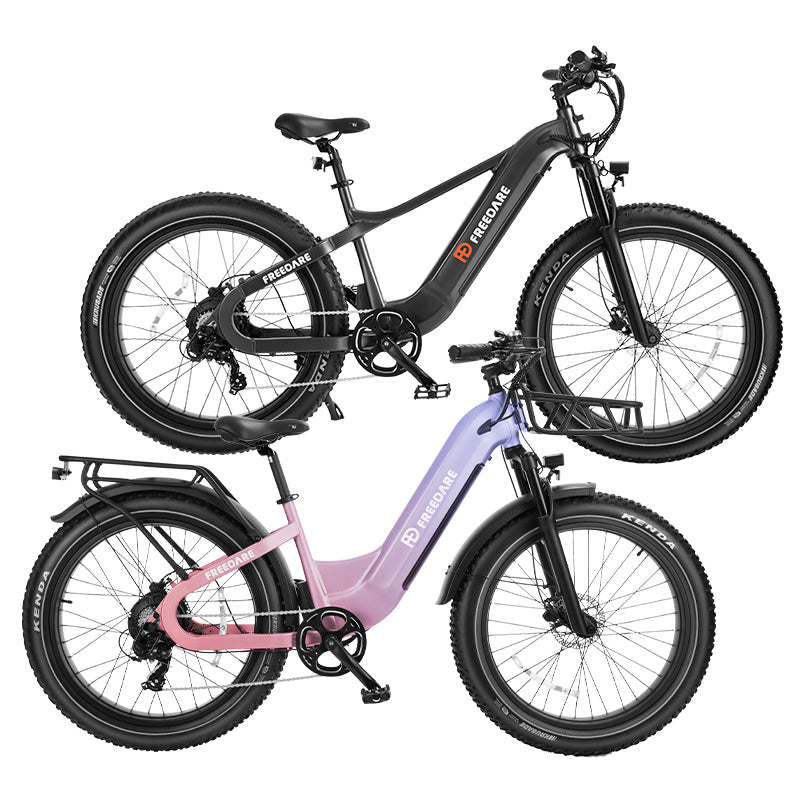Hydraulic Disc Brakes vs. Mechanical Brakes in Electric Bikes

In the realm of electric bicycles (also know as e-bikes), braking systems play a pivotal role in ensuring safety and performance. Two primary types of brakes commonly used are hydraulic disc brakes and mechanical brakes. Each has its distinct characteristics, development history, and benefits in the context of e-bike technology.
How Hydraulic Disc Brakes Work
Hydraulic disc brakes operate on the principle of hydraulic leverage. When the brake lever is squeezed, it pushes a small piston inside the brake lever reservoir, forcing hydraulic fluid through hoses to the caliper. At the caliper, this fluid activates larger pistons that push the brake pads against the rotor, generating friction and slowing down the wheel.
This system allows for quick response times and efficient energy transfer, making hydraulic disc brakes ideal for demanding e-bike applications. Moreover, advancements such as electronic brake sensors and integrated brake systems further enhance their integration with electric bike motor systems, ensuring seamless operation and safety.
Hydraulic Disc Brakes vs. Mechanical Brakes
Mechanical Brakes: Mechanical brakes, also known as cable-actuated brakes, have been a traditional choice for bicycles for many years. These brakes operate by pulling a cable connected to the brake lever, which in turn compresses brake pads against the wheel rim or rotor. This system relies on physical tension in the cable to transmit braking force from the lever to the brake mechanism.
While mechanical brakes are relatively simple and cost-effective, they can be prone to stretching or wearing out over time. They also require regular adjustments to maintain optimal braking performance. However, advancements in materials and design have significantly improved their reliability and stopping power.
Hydraulic Disc Brakes: Hydraulic disc brakes represent a more advanced braking technology, especially favored in high-performance applications like electric mountain bikes and commuter e-bikes.
The key advantage of hydraulic disc brakes lies in their superior braking power, modulation, and consistency. Since hydraulic fluid is non-compressible, it transfers braking force more efficiently compared to mechanical systems. This results in precise control and excellent stopping power, even in adverse weather conditions or during long descents where heat buildup can affect braking performance.
Although hydraulic brakes have obvious advantages, do not mean it can be used permanently. Hydraulic brake systems also need to be replaced regularly. Replacement intervals usually depend on your riding mileage. Check the brake system regularly. When you feel that the brakes are not sensitive, it is recommended to refill the brake fluid or replace the brakes in time. If you are looking for hydraulic brake replacement for Freedare Saiga and Eden fat tire electric bikes, you can purchase them on our online store.
Initially developed for motorcycles and high-end mountain bikes, hydraulic disc brakes have gained popularity in the e-bike industry due to their unmatched performance and reliability. Manufacturers have continuously refined hydraulic brake designs to make them lighter, more compact, and easier to maintain.

Benefits of Hydraulic Disc Brakes on E-Bikes
For electric bicycles, hydraulic disc brakes offer several distinct advantages:
- Enhanced Safety: They provide reliable stopping power, crucial for safely handling the higher speeds and increased weight of e-bikes.
- Low Maintenance: Hydraulic systems generally require less frequent adjustments and are more resistant to cable stretch or wear.
- Improved Modulation: Riders can apply braking force more precisely, allowing for smoother and controlled stops.
- Durability: Hydraulic systems are less susceptible to environmental factors like dirt and moisture, ensuring consistent performance over time.
Which is Better
In conclusion, while mechanical brakes remain a viable option for many electric bicycles, hydraulic disc brakes represent a significant leap forward in braking technology. Their superior performance, reliability, and ease of use make them a preferred choice for riders seeking enhanced safety and control. As e-bike technology continues to evolve, hydraulic disc brakes are likely to remain at the forefront of braking innovation, ensuring a smoother and safer riding experience for e-bike enthusiasts worldwide.
For more information on choosing the right electric bike or to explore our range of e-bike models equipped with hydraulic disc brakes, visit our website or contact our knowledgeable team today.
Photos share by JF Fortin
- Tags: Ebike Tips
0 comments






